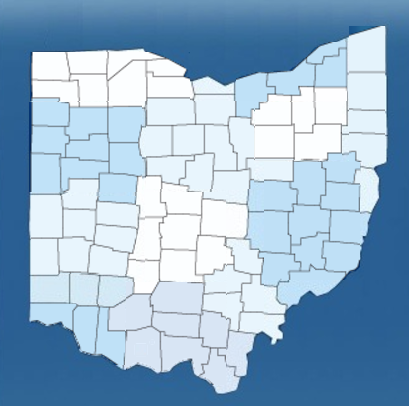Employer in Ohio Workers Compensation
Understanding How Your Employer's Coverage Affects Your Claim
The Ohio workers' compensation system has many unique characteristics, including special distinctions between different types of employers. In order to help you get the benefits you deserve, your lawyer will need to understand how these distinctions can impact your case.
Seeking Workers' Compensation From All Types of Ohio Employers
The type of workers' compensation insurance that your employer has affects how you make a claim and how likely it is that your employer will try to deny you any of the benefits you are seeking. The following are the major types of employers in the Ohio workers' comp system:
State Fund employers : These employers pay premiums to the Bureau of Workers' Compensation so that the State Fund can pay for their employees' benefits. State Fund employers have a right to scrutinize their employees' claims and challenge those that they believe should be denied. Their motivations for doing this are based on the premiums that they pay to the State Fund. There are two basic subcategories of State Fund employers:
Self-insured employers : These employers provide workers' comp benefits to their employees directly or through a third-party administrator. Because they pay claims directly, they generally take an active interest in carefully scrutinizing those claims.
State government agencies: The state of Ohio and all of its agencies are essentially one huge self-insured employer. The Department of Administrative Services is responsible for processing and paying workers' compensation claims by state employees.
Non-compliant employers: Some Ohio employers do not carry the workers' compensation coverage that is required under state law. This does not impact the benefits that an injured worker is eligible to receive. Benefits for employees of these employers are paid by the state of Ohio and billed dollar-for-dollar to their employers.
To talk to an experienced attorney, call us at 888-748-1868 or e-mail us to schedule a free initial consultation. The firms participating in our group all handle claims on a contingency fee basis, so you will not owe any attorneys fees unless your lawyer helps you get compensation.
The Ohio workers' compensation system has many unique characteristics, including special distinctions between different types of employers. In order to help you get the benefits you deserve, your lawyer will need to understand how these distinctions can impact your case.
Seeking Workers' Compensation From All Types of Ohio Employers
The type of workers' compensation insurance that your employer has affects how you make a claim and how likely it is that your employer will try to deny you any of the benefits you are seeking. The following are the major types of employers in the Ohio workers' comp system:
State Fund employers : These employers pay premiums to the Bureau of Workers' Compensation so that the State Fund can pay for their employees' benefits. State Fund employers have a right to scrutinize their employees' claims and challenge those that they believe should be denied. Their motivations for doing this are based on the premiums that they pay to the State Fund. There are two basic subcategories of State Fund employers:
- Experience-rated employers: Most Ohio employers fit into this category. Experience-rated employers pay premiums to the State Fund that are based on claims paid within the past five years. For this reason, although they are not directly paying claims, employers usually take an active interest in them throughout the five-year period.
- Retro-rated employers: These employers pay lower premiums in exchange for reimbursing the State Fund, dollar-for-dollar, for all claims paid within 10 years of an employee's injury. Retro-rated employers generally pay close attention to claims within the 10-year period and are extremely unlikely to agree to settlement offers.
Self-insured employers : These employers provide workers' comp benefits to their employees directly or through a third-party administrator. Because they pay claims directly, they generally take an active interest in carefully scrutinizing those claims.
State government agencies: The state of Ohio and all of its agencies are essentially one huge self-insured employer. The Department of Administrative Services is responsible for processing and paying workers' compensation claims by state employees.
Non-compliant employers: Some Ohio employers do not carry the workers' compensation coverage that is required under state law. This does not impact the benefits that an injured worker is eligible to receive. Benefits for employees of these employers are paid by the state of Ohio and billed dollar-for-dollar to their employers.
To talk to an experienced attorney, call us at 888-748-1868 or e-mail us to schedule a free initial consultation. The firms participating in our group all handle claims on a contingency fee basis, so you will not owe any attorneys fees unless your lawyer helps you get compensation.
Clients love that our attorneys:
|
|
To learn more about your workers' comp options, call us at 800-747-9330 or e-mail us to schedule a free consultation. All of the firms in our group handle cases on a contingency basis, so you will not owe any attorneys fees unless your lawyer helps you get compensation.

